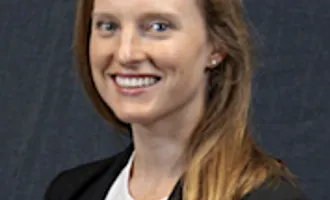Plan Your Future
Editor’s Note: In this new column “Life After UCSF” we speak to UCSF alumni from the graduate division about their career trajectories outside of academia. Once you leave the straight and narrow conveyor belt from graduate student to professorship, the possibilities diverge into a paralyzing array of choices. In this column, we’ll hear the stories of those that have successfully navigated those choices. We hope you find inspiration from hearing about people successfully traversing the world outside the ivory tower.
For UCSF graduate students, the question “What do you want to do after you graduate?” is not a simple one. Many of us enter into graduate school with the intent of becoming PIs, but that goal does not always last.
Some are deterred by grant funding rates; for example, only 15.6% of NIH R01s were funding in fiscal year 2015. Others realize that academia just doesn’t seem like the right fit, but may not be able to articulate why.
I personally came into graduate school unsure of what career I wanted to pursue, but knew that I wanted science to be an integral part of my job. I was excited to learn that UCSF provides several resources for students (and postdocs) seeking career guidance, both for academic and non-academic trajectories.
The Office of Career and Professional Development offers one-on-one career counseling sessions, as well as structured programs for students and postdocs.
For graduate students interested in internships, the Graduate Student Internships for Career Exploration program can help students get hands on experience in a new work environment.
The Motivating INformed Decisions program aims to teach early-stage students and postdocs the skills necessary for career exploration, grant them access to professionals in many fields, and provide peer accountability for making progress while minimizing time away from lab.
I joined MIND as part of the 2015-2016 cohort to jump-start my career exploration process. The program revealed to me how many fields offer exciting non-academic careers for PhD-level scientists, like intellectual property, industry, science communication, business, teaching, and policy.
Things got a bit more complicated (and exciting!) for me, however, when I started to realize how many different job titles exist in each category. Do I want to be a scientist in industry? Management consultant? Patent agent? Editor? Regulatory affairs specialist? Data scientist? How do these jobs differ here in the Bay Area versus the Midwest or the East Coast? How can I find out if I would enjoy and excel in these jobs?
MIND taught me that one of the best ways to learn about a career is by conducting an informational interview with someone who does that. Interviewing professionals in the Bay Area has been an exhilarating experience. I have learned about the exciting careers that UCSF alumni and friends of the university hold at unique companies.
In my upcoming column, I look forward to sharing with you the stories of scientists working outside of academia and how they got there.


